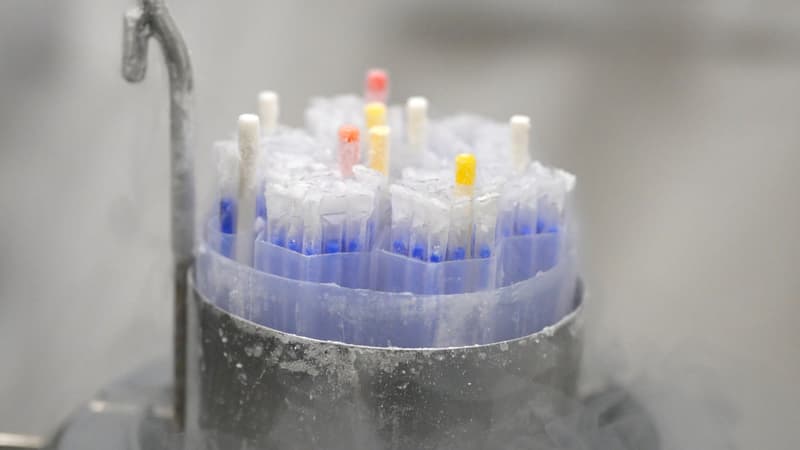The families of several dozen children in Europe, born thanks to a donation of sperm in Denmark, discovered several years after their birth that the donor had a genetic variant that promotes the occurrence of early cancer, they report Le Figaro and The Guardian this Saturday, May 24.
Edwige Kasper, Doctor of Pharmacy and Oncogenetic Biologist at the Chu de Rouen, this case, a Doctor of Pharmacy and Oncogenetic Biologist at the Chu de Rouen, during a Congress of the European Society of Human Genetics in Milan. It was discovered when two families contacted their fertility clinics after their children, born of a sperm donation, developed cancers that seemed to be linked to a rare genetic variant. A genetic variant, also called genetic mutation, designates “a modification that occurred in a gene, which can be responsible for genetic disease,” according to the biomedicine agency.
Contacted by the doctor of one of the French families who benefited from this donation, the biologist Edwige Kasper studied this variant: “I came to the conclusion that the variant was probably carcinogenic and that children born to this donor should benefit from the genetic council,” he explains to the Guardian. It is likely that this genetic mutation causes li-phase syndrome, which is manifested by the early occurrence of several malignant tumors.
The issue of the number of children per donor
Contacted by Le Figaro, the Danish sperm bank that collected this donation says that this variant could not have been detected upstream. “Sperm donors are experiencing an in -depth medical examination, a family history analysis and tests to detect possible genetic and infectious diseases,” said the Danish company. “However, it is impossible to reduce all risks and, in this specific case (…), systematic or preventive detection methods would not have allowed to detect this mutation,” he adds.
“Every human being has about 20,000 genes, and it is scientifically impossible to detect pathogenic mutations in a person’s genetic heritage if we do not know what we are looking for,” said the sperm bank.
But for the biologist Edwige Kasper, the case mainly raises the issue of the number of births authorized for each donor. Because according to the sperm bank, at least 67 children were designed thanks to the gift of man who carries the genetic mutation. The children were born in 8 European countries, between 2008 and 2015. According to The Guardian, the variant was detected in 23 children, 10 of which received a cancer diagnosis. Today, the Danish sperm bank imposes a limit of 75 families per donor.
Edwige Kasper believes that this high roof “creates a risk of artificial dissemination of a genetic disease.” “In normal life, it is extremely rare for a father to give birth to 75 children …”, emphasizes.
With The Guardian, she calls to establish “a European limit for the number of births or families for the same donor.” In France, “the number of children of the same sperm donor is limited to 10 by the Bioethics Law, to rule out any risk of consanguinity for future generations,” according to the biomedicine agency website. “My advice for French parents is to prefer a WFP in France,” said Edwige Kasper in Le Figaro.
Source: BFM TV


